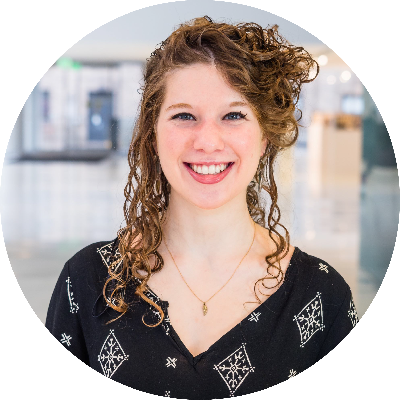
Haley G. Abramson
I work in the HEPIUS (Holistic Electrical, Ultrasonic and Physiological Interventions Unburdening Those with Spinal Cord Injury) Innovation Lab with Amir Manbachi and Nicholas Theodore, where I created a technology to perform automatic detection of surgical items that may be retained in the brain during neurosurgery. For example, with hundreds of cotton balls used every day, one may accidentally be left behind and lead to potentially life-threatening immunologic responses in the patient. Cotton balls must be manually counted as they are placed in and removed from the brain, but as they soak up blood to clear the surgeon’s field of view, they become visually indistinguishable from the surrounding brain tissue. We discovered that ultrasound can discern these two materials when our own eyes cannot. I developed a deep learning algorithm with 99% accuracy, sensitivity and specificity that identifies cotton balls and other surgical items in ultrasound images of the brain. This technology is paired with a smartphone application that can be used intraoperatively without saving patient health information.
Questions & Answers
Why did you choose Johns Hopkins for your work?
When I came to Johns Hopkins during my interview weekend, I received the warmest welcome from students who were clearly excited to be there. I was thrilled to join this community at a top research institution, where I have also had incredible opportunities to work side by side with clinicians to solve biomedical challenges.
What does receiving this award mean to you personally and professionally? Do you have any connection with the particular award you received?
I feel so honored to be recognized as a young investigator here at Johns Hopkins and encouraged to continue pursuing biomedical research throughout my career in industry.
For each of my thesis projects, I had a clinical mentor and an engineering mentor. Being able to work with neurosurgeons Henry Brem, Judy Huang and Nicholas Theodore on this project put me on the path to success. They allowed me to observe in the operating room so that I understood how best to develop an intraoperative technology. In addition, I have been able to work with Johns Hopkins Technology Ventures to file a patent application on this project, for which we have already licensed an option agreement.
What thoughts do you have about Young Investigators’ Day itself, as a celebration of the roles student and fellows play in research at Johns Hopkins?
I love to celebrate the remarkable work done by Johns Hopkins graduate students, and I have been inspired by the successes of previous Young Investigators award winners. It is excellent that Hopkins finds it important to recognize high caliber student research.
What has been your best/most memorable experience while at Johns Hopkins?
As a biomedical engineering Ph.D. student, I had the opportunity to take anatomy with the medical students my first semester. I found this course to be tremendously informative and fascinating, and I enjoyed being able to meet the medical students — some of whom I ended up working with a few years later.
What are your plans over the next year or so?
I just graduated in March! In August, I will join the technology leadership development program at Becton Dickinson, which will help to accelerate my career in the medical device industry.
Tell me something interesting about yourself that makes you unique. Do you have any special hobbies, interests or life experiences?
I’ve had some fun jobs. I performed research in a biomechanics lab in France, taught entrepreneurship to high school students in Israel, worked at a health care startup in South Africa, helped develop a bionic eye in Australia and served as a taste-tester for gourmet food groups in New York City.